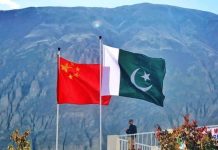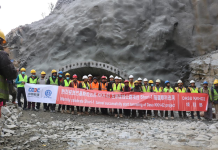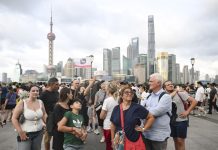Beijing: After thousands of years of evolution from individual struggles for existence, human civilization is at another historic crossroads today: whether to propel competition into confrontation, or establish a social ecology of cooperation.
What distinguishes civilization from barbarism is not the capacity for material productivity but the capacity to build symbiotic societies.
The future lies in people’s perceptions and the choices they make. The novel coronavirus disease pandemic is an example. While it has shown that joint efforts are needed to face the crisis, some politicians in certain Western countries have tried to use it as a handle to further divide the world.
Against this backdrop, Chinese State Councilor and Foreign Minister Wang Yi’s recent visit to Japan and the Republic of Korea (ROK) was a diplomatic initiative to promote cooperation and symbiosis in East Asia.
Positive signs: Wang’s visit followed the signing of the Regional Comprehensive Economic Partnership (RCEP) by 15 Asia-Pacific economies.
When globalization is receding and politicians in the world’s only superpower, the United States, are pushing for a new cold war, economic fragmentation and political confrontation, the new partnership shows that although we now live in a more divided world, the call for forging synergy still has its supporters. Progress in regional cooperation has been pronounced in East Asia, which has enjoyed more rapid development than other regions.
However, partnerships within the region took time to develop due to the gaps between its different economies and their political and cultural pluralism, as well as external countries’ attempts to restrain regional progress.
Previously, the idea was to develop trilateral ties among China, the ROK, and Japan first and expand the momentum to the rest of the region.
– The Daily Mail-Beijing Review News exchange item






